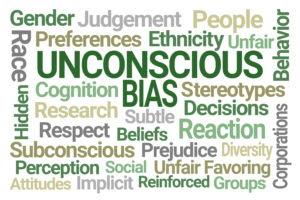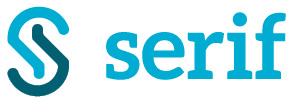Unconscious bias is a widespread issue in recruitment that needs addressing and is a lot more common than you think. People within your organisation may have been using it without realising when recruiting and it could be hindering you from finding the best talent.
What is unconscious bias?
An unconscious bias, also known as an implicit bias, is a subconscious opinion that people have towards or against others, whether it’s related to gender, age, or ethnicity, and can affect attitudes and behaviours towards other people. These biases can create group think and conformity which leads to barriers to ethnicity and diversity in recruitment processes and is an issue we see on a regular basis as HR practitioners.
People are often unaware that they are making judgements about others. We subconsciously make decisions, it’s in our nature, even if we don’t mean to. Usually, based on first impressions, our judgements are formed from experiences, upbringing and environment, which can all lead to unconscious bias.
Unconscious bias is different to conscious bias which is internationally meant to discriminate. And it’s not a new thing. Unconscious bias has always been around, but these days HR professionals and organisations are more in tune with ensuring fairness, ethnicity and diversity, as well as eliminating any form of discrimination in the workplace.
Over recent years diversity and ethnicity in the workplace have become a key focus area for organisations, particularly when hiring people. An organisation needs to ensure it is rich with variation and making the most of the diverse workforce we work within.

Unconscious bias in recruitment
There are over 150 different forms of unconscious bias, however, the most common forms include affinity bias, conformity bias, confirmation bias, gender bias, halo effect and height discrimination.
When recruiting, subconsciously you could be judging people on their gender, sexuality, weight, age, gender, accent or status, which subsequently impacts fairness, diversity and equality. You may prefer someone because they share the same qualities as you, you are being influenced by the people around you, or you are influencing others through your positive view of someone. IN HR we often hear they must be a ‘fit’ for the organisation. But does that ‘fit’ actually reduce and restrict your pool of people?
You might prefer a certain gender or have specific beliefs around stereotypes for particular roles. Sadly, and often, people unknowingly choose applicants based on the way they look or their age. Malcolm Gladwell writes in his book* that in the US population only 14.5% of all men are over 6 feet tall and yet among the CEOs of Fortune 6500 companies that number is 58%
It is a difficult one to control in a workplace, so how can you remove unconscious bias from hiring processes?
In truth, it’s never going to go away, but it can be minimised. You need to ACT –
Acknowledge it is happening,
Challenge it when you see it and finally
Train all involved to be aware of it.
Help employees to understand what unconscious bias is, will make them more aware of when it’s being used. The majority of people don’t set out to discriminate and probably don’t realise they are doing it, so being more aware of it can help minimise it.
Consider what opinions you form when you’re hiring someone. It’s crucial when making decisions about a person on whether to recruit them to spend more time thinking about why you do or don’t want to hire them. Making quick decisions that may have been influenced by others, can put you at risk of unconscious bias but also missing the stronger candidate.
Unconscious bias can be difficult to tackle as there are so many different forms. By providing the right tools for employees and organisations and introducing policies and procedures can help minimise it in recruitment processes and ensure a mix of candidates, as well as finding the best talent.
If you would like some support on how to recruit without bias, please do get in touch.
*Blink: the power of thinking without thinking


